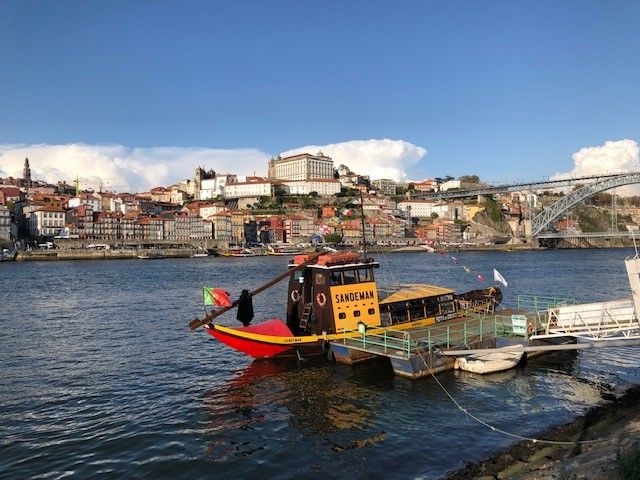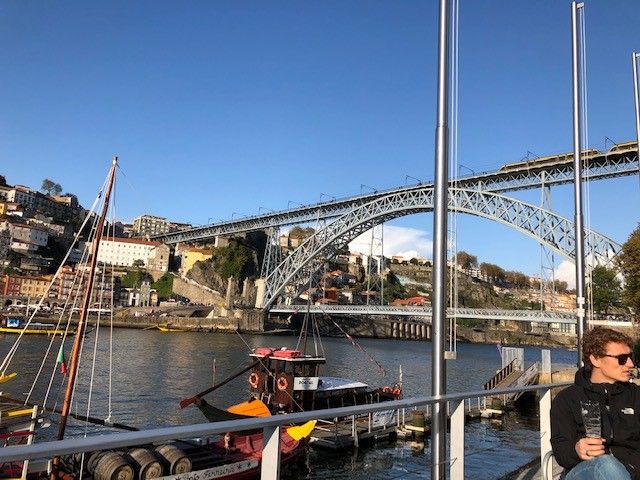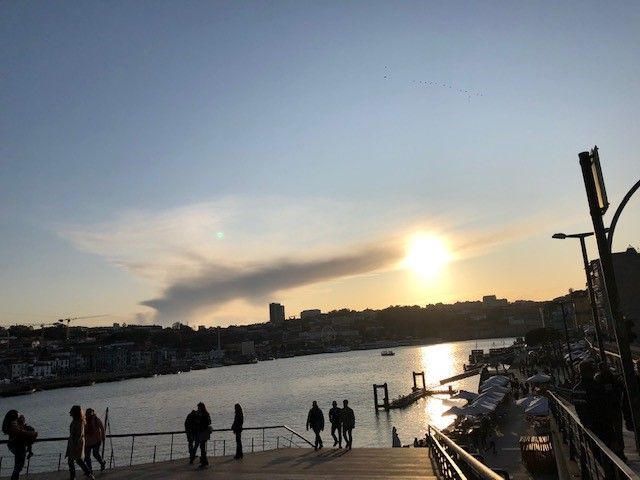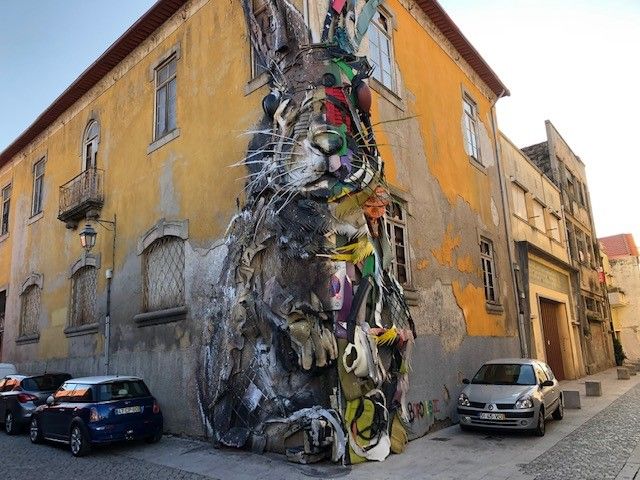The city of Porto
The city of Porto was voted Europe’s top tourist destination in 2019 by Culture Trip, which surveyed the opinions of over six million travelers. Incidentally, this is the second consecutive year Portugal has won the award, with the city of Lisbon being elected last year.
Our interest in the country is due to the growing number of Brazilians venturing there, replacing Brazil’s political and financial instability for the stability of the euro, combined with the advantages provided by the common language. We found several coffee shops with Brazilian DNA, such as Onnie, which will open its doors later this month, in Lisbon, and Âme, in Porto, not to mention a number of Brazilians working behind the counters.
We took a trip of almost 20 days to unravel the universe of “cafés de especialidade,” the name given locally to specialty coffees, the production of bean-to-bar chocolates and, amazingly, the teas. We even managed to visit a tea farm less than 30 minutes ago in the city center, and we loved everything we saw!
Mix of charm and warmth
Porto is a unique city that follows its own pace. Incidentally, there are two cities – Ribeira, a tourist town, and another, far from D’Ouro, where local inhabitants have little to no interaction with tourists. It may not be the capital or the most populous city in Portugal, but it is undoubtedly the most charming and the best host to foreign nationals who have discovered the place in recent years. In fact, many Europeans, taking advantage of the low prices compared to other capitals of the continent, have decided to adopt the city as their home.
The city is cut by the D’Ouro River and, housing on the other side the small Vila Nova de Gaia, a pleasant surprise for travelers, with its cellars (shops that sell the famous Port wine), a 15-kilometer bike path running through its beautiful beaches, and the best coffee shop in Porto, 7groaster, which also offers lodging for visitors. Check out our tips!

Porto is a two-hour flight from Paris, two and a half hours from London, and just under three hours from Rome and has a very mild climate compared to the rest of Europe.


7groaster
Carla Pinto and her husband have decided to combine specialty coffees with the tourism business and bought an old property in Vila Nova de Gaia, used by a set designer, a few steps from the D’Ouro River, about five years ago, for investment purposes. They were living in Angola and had the idea of creating a complex that could merge tourism and coffee. They wanted to create something they always enjoyed, giving guests a special treat. Because the place is unique, they hired Portuguese architect Miguel de Souza, a lover of specialty coffees, to carry out the project. They invested about €1.5 million and built 11 very cozy and modern apartments upstairs, which are rented through booking.com and experia.com, with one particularity: each room has a French press and a 40-gram bag of fresh special coffee, roasted on the day. The amenities are also all made in partnership with local artisans.
As for tourism, they created seven different circuits across Vila Nova de Gaia, by bike through the beaches, on foot, or by taxi.
The cafeteria – the coolest, most modern in Porto – is located at the bottom floor of the building, also housing, in the middle of the hall, a roaster bearing the same name, operated by the award-winning barista and roaster of Portugal, Davi Coelho. He uses a Jooper, a roaster also produced in Vila Nova de Gaia.
Before opening, Carla took a course at the Coffee Academy in Lisbon, alongside Sandra Azevedo (read article here), where she met David. In addition to roasting coffee for the establishment itself, 7groaster supplies its packs to several other establishments in the city. Its coffees come mainly from Brazil, Ethiopia, Colombia, Peru, El Salvador, Panama, and Guatemala.
Decorations that refer to local origins
In a large hall, decorated with an industrial design, without neglecting the local origins, the owners honored the craftsmen of Gaia in the decoration, such as the fishing nets of the lodgings, and in the cuisine. Visitors to the place are compelled to try a typical Gaia sweet, Velhotes da Braguesa, a perfect accompaniment to the coffees served there, in various preparation methods such as Hario V60, Koar, chemex, and kalita, among others. Craft beers, bean-to-bar chocolates and other typical sweets are also available for trying. Learn more about the coffee cuppings from the various sources they serve.

Vila Nova de Gaia, Porto, Portugal
That was the first story about our trip to Europe! Stay tuned for the next few days for more news!



